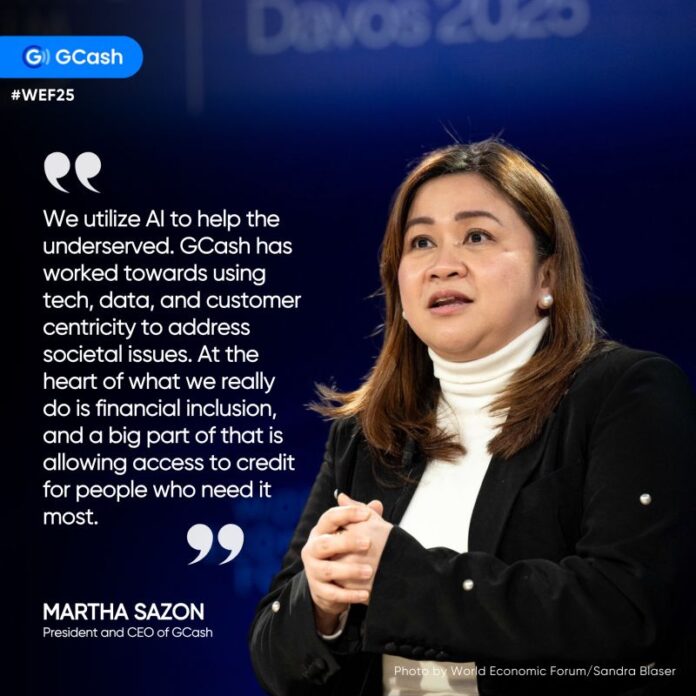GCash, the Philippines’ leading digital finance platform, is driving efforts to enhance financial inclusion by harnessing artificial intelligence (AI) in close collaboration with businesses and the government. This commitment was underscored by Martha Sazon, president and CEO of Mynt, the parent company of GCash, during a panel at the World Economic Forum (WEF) Annual Meeting 2025 in Davos, Switzerland.
At the WEF session, Sazon emphasized that GCash’s mission is not just about technological advancement but ensuring that the benefits of these innovations are accessible to all Filipinos. “At the heart of what we do is financial inclusion,” she stated, outlining how GCash has used AI, data, and a customer-centric approach to address societal challenges.
One key development is GCash’s use of AI to assess creditworthiness through its proprietary system, GScore. This breakthrough has allowed users, particularly underserved segments, to access financial products without the usual requirements of documentary evidence or collateral. This move is a significant step in fulfilling GCash’s vision of “Finance For All.”
In addition to improving access to credit, AI has been deployed to personalize user experiences. GCash’s advanced customer relationship management system uses AI to tailor financial solutions, enhancing both customer satisfaction and trust. “AI helps us tailor-fit solutions for each segment, making our services more intelligent and secure,” Sazon explained, highlighting the role of AI in the app’s robust security measures, including facial recognition technology to prevent unauthorized access.
GCash is also exploring AI’s potential within its internal operations. Through generative AI, the platform has boosted productivity by supporting customer service and employee functions with AI co-pilots, making workflows more efficient.
The WEF panel also delved into the broader potential of generative AI in the Asia-Pacific region, noting that AI could contribute an estimated USD 15.7 trillion to the global economy by 2030. For the Philippines, this translates to a potential gain of $47 billion (roughly P2.6 trillion) annually, creating strong incentives for businesses to adopt AI-driven solutions.
Sazon emphasized that the key to AI’s success lies in its collaboration with human talent. “Our approach is that AI and our employees work hand in hand to deliver more intelligent, efficient services,” she said, reinforcing the importance of human-AI partnership in driving sustainable innovation.
As GCash continues to integrate AI into its offerings, the company’s collaborative efforts across industries and with the Philippine government are positioned to reshape the financial landscape, making technology-driven financial solutions accessible to all.







